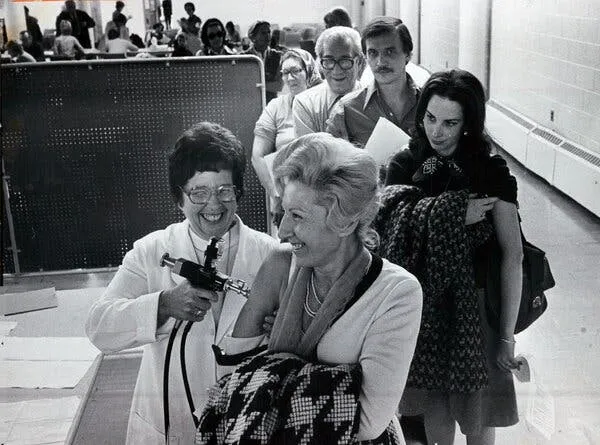As the world continues to grapple with the COVID-19 pandemic, the role of mass vaccination in curbing the spread of infectious diseases has come to the forefront. However, mass vaccination programs are not a new concept. In the 1970s, a landmark mass vaccination campaign known as the Trojan Horse was carried out in Bangladesh, a country then known as East Pakistan. This vaccination program was a groundbreaking move in public health, as it sought to prevent the spread of smallpox, which had ravaged the country for decades.
The Trojan Horse Mass Vaccination campaign was unique in that it involved a double-blind approach to administering the vaccine. The term “Trojan Horse” referred to the method of administration, in which a group of vaccinators visited a remote village, and along with administering the smallpox vaccine, they also offered a gift of food or clothing. This gift was intended to increase the likelihood of the villagers accepting the vaccine, as they perceived the gift as a sign of goodwill.
The campaign was also unique in that it involved a double-blind approach, which meant that neither the vaccinators nor the recipients knew who was receiving the actual vaccine and who was receiving a placebo. This approach was intended to eliminate any potential bias or preferences on the part of the vaccinators, and to ensure that the results of the vaccination program were scientifically valid.
The campaign was carried out over a period of several months, with a team of over 100,000 vaccinators covering an area of more than 150,000 square miles. The program was a huge success, with over 80% of the target population being vaccinated. This was a significant achievement, given the logistical challenges of reaching remote and isolated villages, and the mistrust and suspicion that some communities had towards the government.
The impact of the Trojan Horse Mass Vaccination campaign was far-reaching. The campaign succeeded in eradicating smallpox from Bangladesh, and the country was declared smallpox-free in 1977. This was a major achievement, as smallpox was a highly contagious and deadly disease, which had killed millions of people around the world over the centuries. The success of the campaign in Bangladesh also served as a model for other countries to follow, and it contributed to the eventual eradication of smallpox worldwide.
The Trojan Horse Mass Vaccination campaign was not without its controversies, however. Some critics argued that the double-blind approach was unethical, as it denied some people the opportunity to receive the actual vaccine. Others questioned the use of incentives, such as food and clothing, to encourage vaccination, as they saw this as coercive and manipulative.
Despite these concerns, the Trojan Horse Mass Vaccination campaign remains a landmark achievement in public health. It demonstrated the power of mass vaccination in preventing the spread of infectious diseases, and it provided a model for other countries to follow. The campaign also highlighted the importance of community engagement and participation in public health programs, as it sought to address the underlying mistrust and suspicion that some communities had towards the government.
In conclusion, the Trojan Horse Mass Vaccination campaign of the 1970s was a revolutionary move in public health. It demonstrated the power of mass vaccination in preventing the spread of infectious diseases, and it provided a model for other countries to follow. The campaign was not without its controversies, but it remains a landmark achievement that has had a far-reaching impact on public health around the world.












